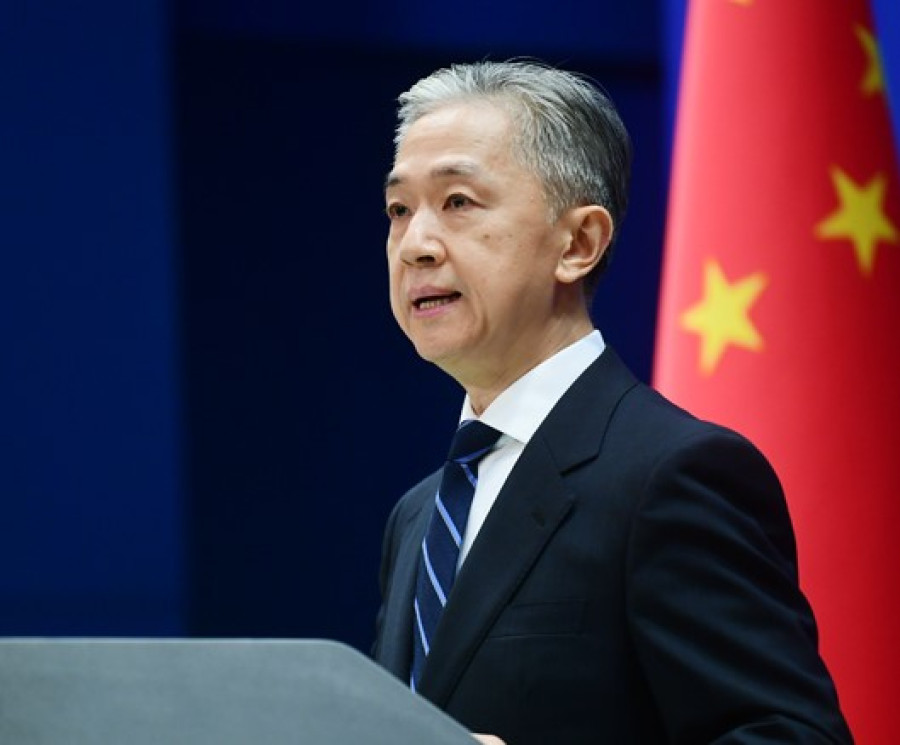National
Beijing says it commends Nepal’s decision not to move ahead with America’s SPP
China stands ready to work with Nepal to jointly safeguard regional security, stability and shared prosperity: Foreign Ministry spokesperson
Post Report
China says it welcomes the Nepal government’s decision of not moving ahead with the State Partnership Program of the United States government.
Speaking at a regular press briefing, Wang Wenbin, spokesperson of China’s Foreign Ministry, said on Thursday that as a friendly and close neighbour and strategic cooperative partner, China commends the Nepali government’s decision [not to move ahead with the SPP.]
The statement from the Chinese government comes three days after the Sher Bahadur Deuba Cabinet on Monday decided not to move ahead with the SPP.
“Various political parties and factions, the government, the army and people across the Nepalese society see the SPP as a military and security initiative closely linked to the Indo-Pacific Strategy,” said Wang, according to a Chinese Foreign Ministry’s statement, “and they consider it against the national interests of Nepal and its long-held non-aligned, balanced foreign policy to be part of the SPP.”
The SPP has become a hotly debated political issue in Nepal with parties engaging in a blame-game.
According to the US embassy in Kathmandu, Washington accepted Nepal in the SPP in 2019 after two requests—first in 2015 and then in 2017.
As per a letter dated October 27, 2015, the then Nepal Army chief Rajendra Chhetri had requested Nepal’s association with the SPP.
The Cabinet on Monday took the decision not to move ahead with the SPP following widespread criticism and pressure from various quarters, including the main opposition CPN-UML, a House committee, coalition partner as well as Prime Minister Sher Bahadur Deuba’s own party, Nepali Congress.
Beijing had earlier in February spoken about Washington’s “coercive diplomacy” when a debate was raging over ratification of the Millenium Challenge Corporation. The Chinese see both the MCC and SPP as an American strategy to expand Washington's influence and counter China.
Despite China’s concerns, Nepal’s Parliament, however, had ratified the MCC on February 27.
On Thursday, Wang said China will continue to support Nepal in upholding its sovereignty, independence and territorial integrity and support Nepal’s commitment to its independent and non-aligned foreign policy.
“China stands ready to work with Nepal to jointly safeguard regional security, stability and shared prosperity,” he said.




 20.12°C Kathmandu
20.12°C Kathmandu













